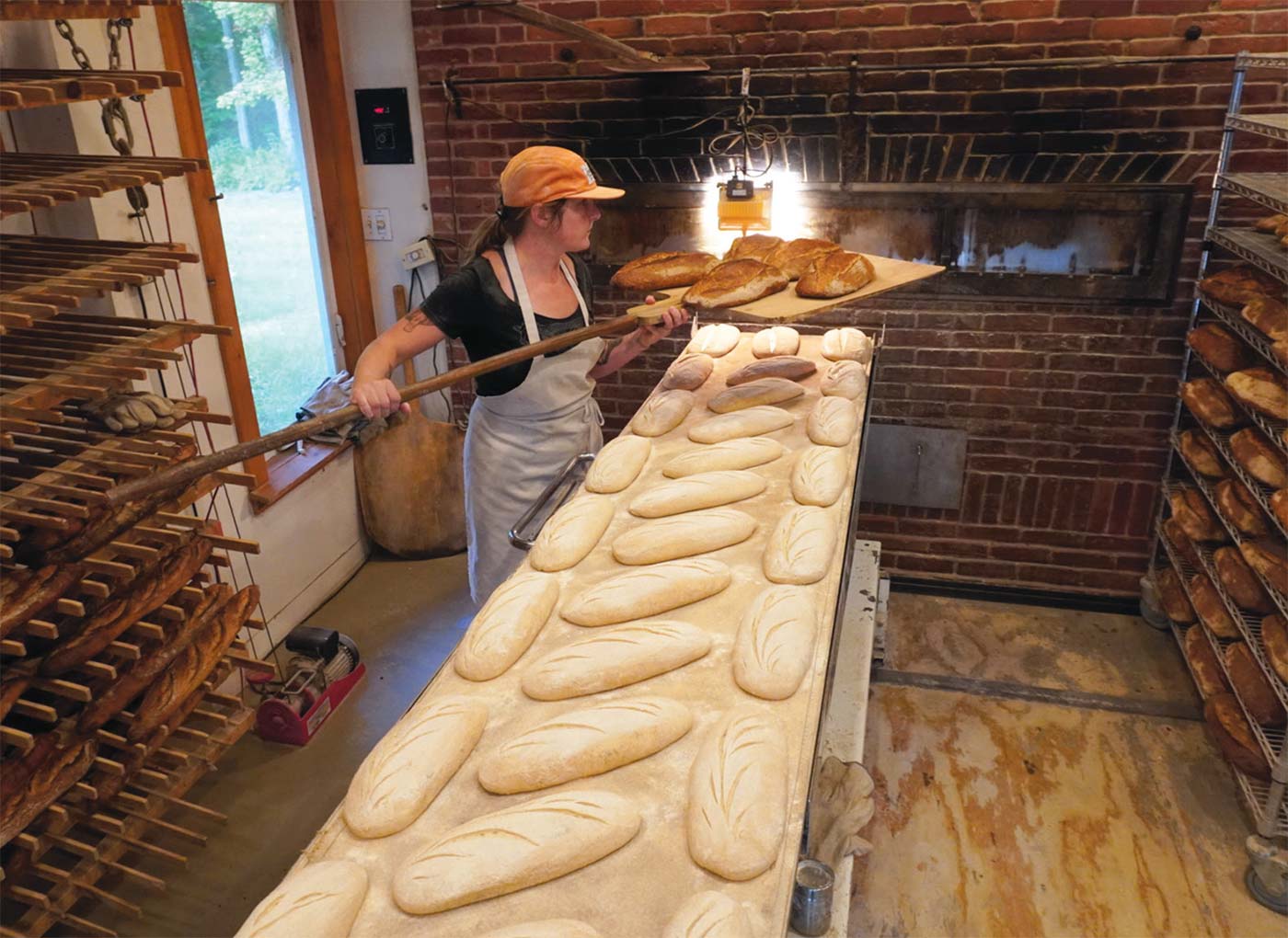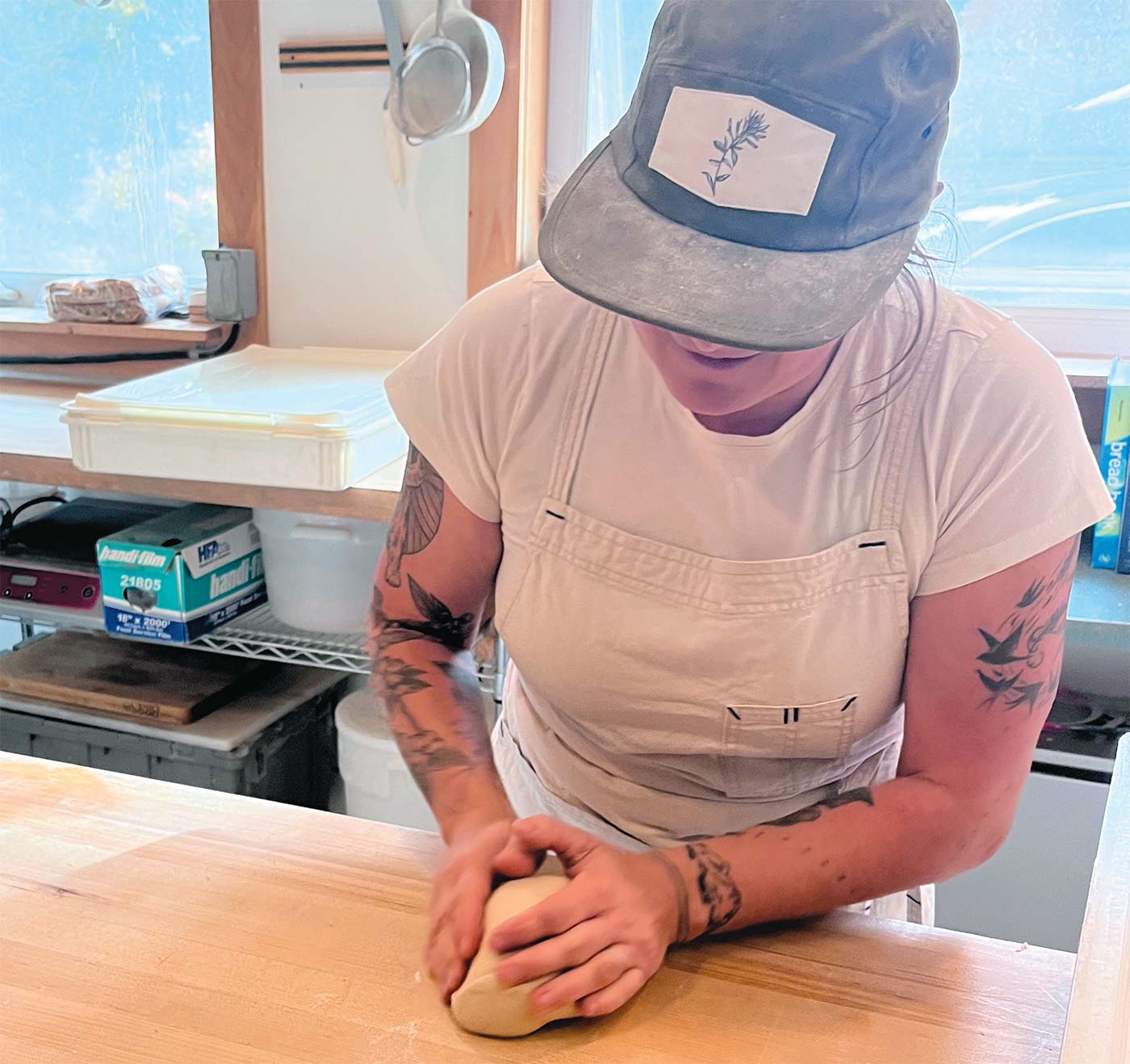Elmore Mountain Bread, Elmore
Blair invited me to sniff the flour, and I smelled earth, grass, and farm. With that one sniff, I knew we were not in Kansas anymore. This flour was local. This flour has a story.
Early in my conversation with Blair Marvin, co-owner of Elmore Mountain Bread, she opened what looked like a plastic garbage can to show me the flour inside, tan instead of the snowy white stuff I see when I open a bag at home. She invited me to sniff it, and I smelled earth, grass, and farm. With that one sniff, I knew we were not in Kansas anymore. This flour was local. This flour has a story.
If this were a baking day, Blair would have wrapped up today’s bake by the early hour we met. Depending on the day, she’s making a seven grain, country French, baguettes, or other loaves. By 10 a.m., the day’s production of up to 600 loaves is out of the oven, bagged, and in the delivery van, heading off to local stores and restaurants within a 25-mile radius of her home/bakery in Elmore.
Although her fine-tuned process of making and distributing bread works beautifully for the business, the routine had gone stale after several years for her and her husband, Andrew Heyn. “We needed to do something different,” Blair says. They thought of opening a store or expanding their delivery range. But to make the best bread they could, they decided to investigate their primary ingredient.
Ten years ago, when Elmore Mountain Bread was having its midlife crisis, few bakers in the country—and none in Vermont—milled their flour. Making this transition to stone-ground grains would require Blair to modify her recipes to include the goodness that comes with whole grain flour. Roller mills, which produce most of the flour we use, strip out the bran and the germ, and with those, most of the flavor and nutrition. They also decided to use only organic grains grown in Vermont. However, at that time, only one farm in the state, Rogers Farmstead in Berlin, grew enough grain to meet Elmore Mountain Bread’s needs.

Blair removes some of the 600 loaves she bakes in a day from the oven. PHOTO: COURTESY ELMORE MOUNTAIN BREAD
Blair purchased 20 tons and started baking their first loaves consisting entirely of grain grown in Vermont, fittingly called Redeemer. With that bread, Blair became an evangelist. She hand-stamped Rogers Farmstead’s logo on the bread bags and sang the praises of a bread made from organic wheat grown in Berlin, just 20 miles from Wolcott, and stone milled just feet from their oven.
Next year, Rogers Farmstead planted more grain. Soon, other farmers noticed, and in 2020, eight years after Elmore Mountain Bread started milling their grain, eight years of learning the variations in grain from year to year, region to region, farm to farm, even field to field, eight years of other miller-bakers following Blair’s lead and thus making grain growing more sustainable for farmers, Elmore Mountain managed to source all their grain from Vermont farms. “The farthest farm we source grain from is Nitty Gritty Grains, [40 miles away in Charlotte],” Blair says, “and the closest is North Hardwick Farm,” a mere nine miles away.
Baking bread is no longer stale to Blair. Using different kinds of wheat with different characteristics, she says, “was what I needed to get excited about bread again.”
So the next time you bite into a slice from a loaf of Elmore Mountain Bread, follow the chain backward from retailer, to baker, to miller, to farmer. With all that goodness and the benefit it provides Vermont’s grain economy, there’s no place like home.




